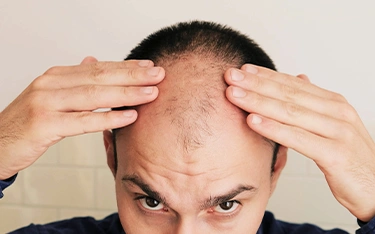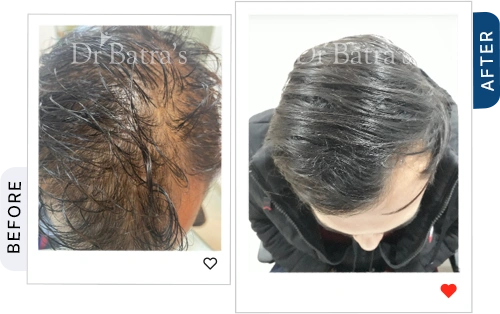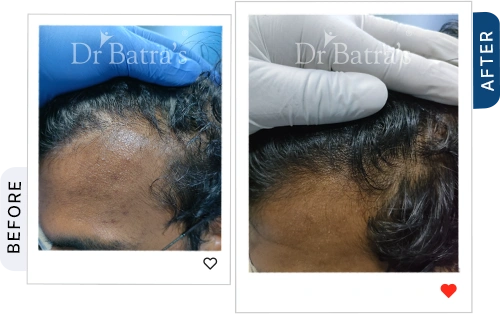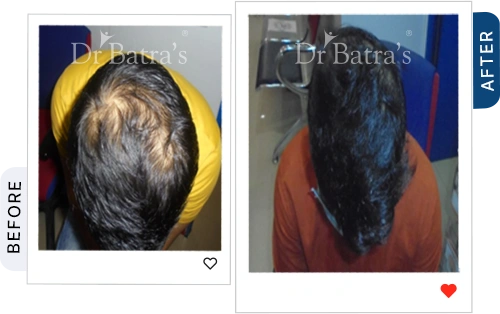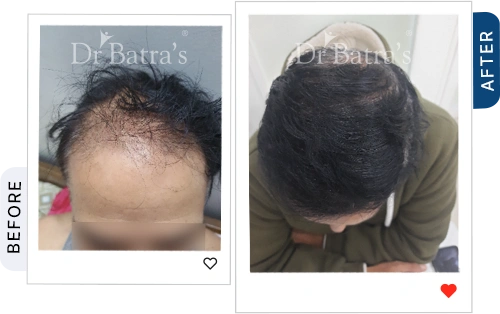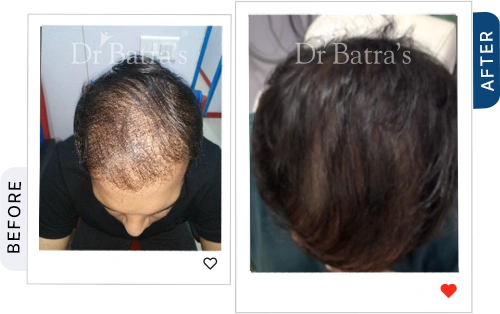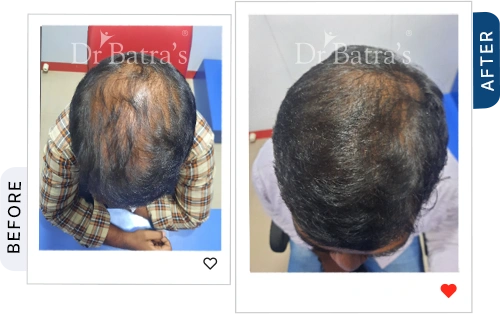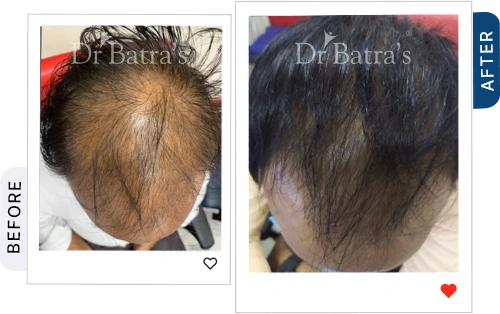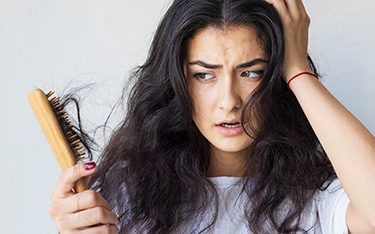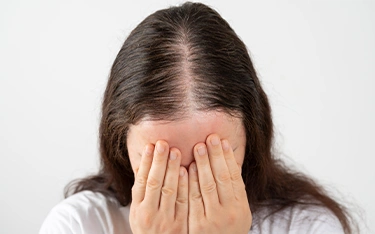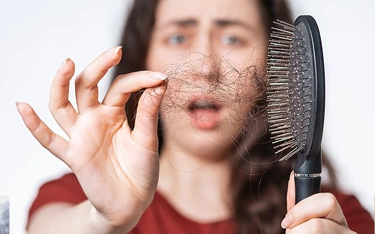FAQs
Male Pattern Baldness (Androgenetic Alopecia) is primarily caused by genetics and hormonal changes. A hormone called Dihydrotestosterone (DHT) shrinks hair follicles, leading to hair thinning and gradual hair loss.
While stress doesn't directly cause Male Pattern Baldness, it can worsen hair loss by triggering conditions like Telogen Effluvium, which accelerates hair shedding. Stress may also affect hormonal balance, potentially speeding up hair loss.
Yes, a lack of essential nutrients like protein, iron, biotin, and vitamins (D & B12) can weaken hair follicles and lead to excessive shedding, making existing hair loss worse.
Yes, habits like smoking, excessive alcohol consumption, poor sleep, and lack of exercise can contribute to faster hair thinning by reducing blood circulation to the scalp and increasing oxidative stress.
No, wearing a cap or helmet does not directly cause baldness. However, excessive sweating and friction can weaken hair roots if proper scalp hygiene is not maintained.
Yes, an increase in DHT levels is a key hormonal factor that leads to follicle shrinkage and hair loss in men with a genetic predisposition. Other hormonal imbalances, like thyroid disorders, can also impact hair health.
Hair styling products like gel, wax, or pomade don’t directly cause baldness, but excessive use of chemical-laden products can lead to scalp irritation, buildup, and weaker hair strands, which may accelerate hair breakage.
